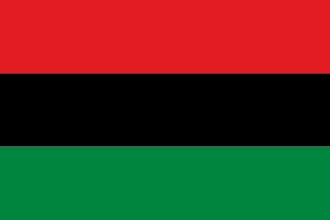In an era of misinformation, a recent propaganda piece has attempted to tarnish the Pan-African movement by falsely claiming its name derives from the Greek god Pan. This could not be further from the truth. This article breaks down the true, powerful origins of the Pan-African movement and the visionary leaders who shaped its destiny.
The “Pan” in Pan-Africanism: A Meaning of Unity
The “Pan” in Pan-Africanism has no connection to the Greek god Pan. It comes from the Greek prefix “pan-,” meaning “all,” “whole,” or “every”. The name was deliberately chosen to represent the fundamental objective of the movement: the unity and solidarity of all people of African descent, both on the African continent and throughout the global diaspora.
Pan-Africanism is an ideology and movement that aims to encourage and strengthen bonds of solidarity between all indigenous peoples and diasporas of Sub-Saharan African ancestry. It is based on a common goal dating back to the struggles against the Atlantic slave trade, enslavement, and colonization.
The Founders and Early Architects
While the resistance has ancient roots, modern Pan-Africanism began as a distinct political movement at the dawn of the 20th century, largely pioneered by people of African heritage living outside the continent.
The following table summarizes the foundational figures who laid the groundwork for the movement.
Key Figure Origin Major Contribution

Henry Sylvester Williams Trinidadian Barrister Organized the First Pan-African Conference in London (1900), coining the term for a political context.

W.E.B. Du Bois American Intellectual & Activist Considered the “father of modern Pan-Africanism”; organized the landmark Pan-African Congress series (1919-1945) to maintain momentum.

Marcus Garvey Jamaican Political Leader Founded the Universal Negro Improvement Association (UNIA), creating a mass movement promoting African independence and “Back to Africa”.

Kwame Nkrumah Ghanaian Statesman First Prime Minister of independent Ghana; became the movement’s foremost advocate on the continent, hosting the All-African Peoples’ Conference in 1958.
The Movement Takes Shape: Congresses and Continental Liberation
The early vision of these leaders was institutionalized through a series of pivotal meetings that directly advanced the cause of African liberation.
The Pan-African Congresses
The First Pan-African Conference in 1900, organized by Henry Sylvester Williams, was a protest “against the stealing of lands in the colonies, [and] racial discrimination”. This was followed by the Pan-African Congress series, masterminded by W.E.B. Du Bois. The most significant was the Fifth Pan-African Congress in Manchester, UK, in 1945. For the first time, it featured a critical mass of future African leaders, including Kwame Nkrumah and Jomo Kenyatta, and shifted the demand from reform to decolonization, asserting the right of colonized people to use force for self-determination if necessary.
From Independence to Unity
The success of these movements led to a wave of African independence. Kwame Nkrumah, leading newly independent Ghana, became a driving force for continental unity. In 1963, his efforts, along with those of other leaders, culminated in the formation of the Organization of African Unity (OAU) in Liberia, a direct manifestation of the Pan-African vision. The OAU’s core missions were to promote unity, defend sovereignty, and coordinate efforts to eradicate all forms of colonialism from Africa. In 2002, the OAU was succeeded by the African Union (AU), which continues to pursue the Pan-African goals of greater political and economic integration.
The Enduring Legacy of Pan-Africanism
The ideals of Pan-Africanism remain a vital force today. It provides a framework for advancing peace, people-based democracy, and human rights. The African Union’s decision to establish the diaspora as its sixth region and its ambitious “Agenda 2063” for a unified, prosperous Africa are testaments to the enduring power of the Pan-African vision.
The movement’s legacy also lives on in cultural expressions, from the Harlem Renaissance and the philosophy of Negritude to Afrocentrism and Hip Hop, all drawing inspiration from a shared African identity and heritage.
Conclusion: A Movement for All Africans
The propaganda attempting to link Pan-Africanism to a Greek god is not only false but seeks to undermine a profound legacy of liberation. The “Pan” in Pan-Africanism has always stood for unity—a collective struggle for freedom, dignity, and self-determination for all people of African descent. By understanding its true origins and honoring its key figures, we keep the spirit of solidarity and the quest for a unified, empowered Africa alive.

Leave a Reply